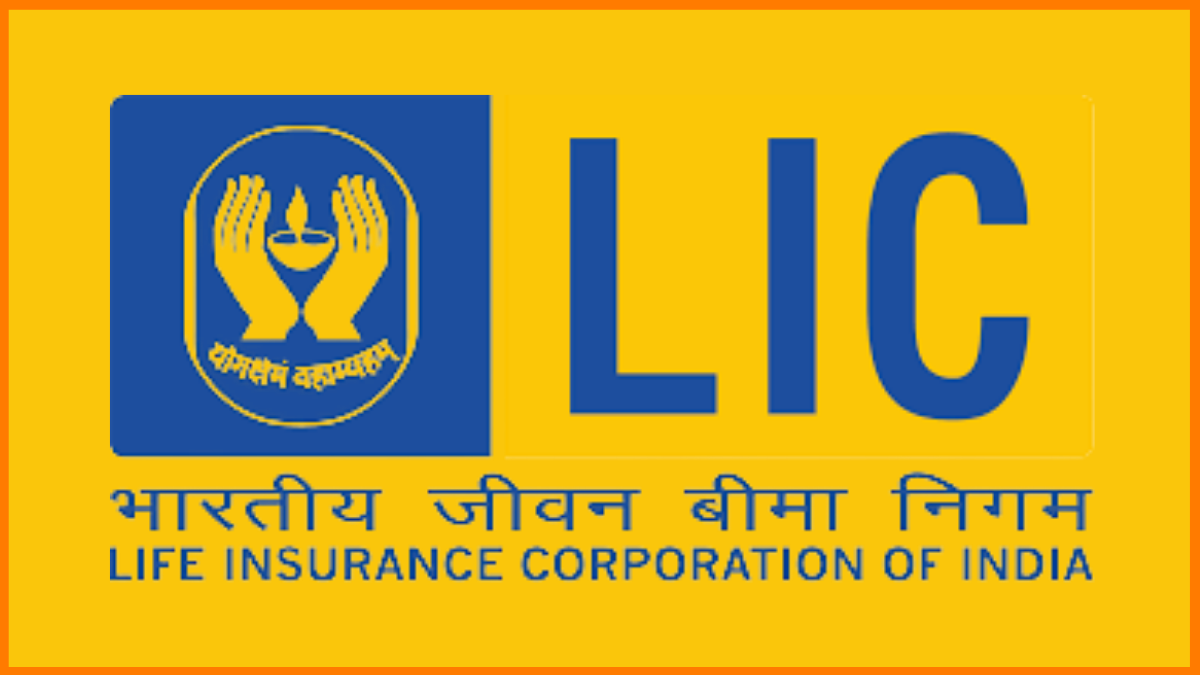Top 10 Best Joint Stock Companies in India 2023

Top 10 Best Joint Stock Companies in India 2023
The forerunner of the contemporary corporation is the joint-stock company. A joint-stock corporation is a company that is owned by its stockholders, with each stockholder owning a share according to the number of shares they bought.

Joint-stock companies are established to finance projects that are very expensive for a person or even a country to pay. A joint stock company’s shareholders expect to receive a part of its earnings.
KEY LESSONS
- A joint-stock company is a company that is held jointly by its investors, who can exchange shares with one another. Despite the reason that there are particular legal differences, joint-stock corporations are the forerunners of contemporary corporations.
- Because a joint-stock corporation was not incorporated, its shareholders were subject to unlimited liability for the firm’s debts.
- The act of incorporation in the United States restricts a shareholder’s liability to the nominal value of the share.
Knowledge of Joint Stock Companies

A joint stock company’s stockholders are entirely responsible for all obligations that were incurred by the business unless it is incorporated. In the United States, the legal process of incorporation limits this responsibility to the shareholder’s stock’s face value. Similar meanings for the word “limited” exist in Britain.
A joint stock company’s shares are transferrable. Claims of a common stock firm that is traded publicly can be found on authorized stock exchanges. Private joint-stock company shares can be transferred between parties, but this is often restricted by agreement, for example, to close family members.
Investors in joint-stock businesses used to be subject to unlimited liability, which meant that, in the situation of a company failure, a shareholder’s private possessions could be taken to satisfy all the obligations.
Public Company vs. Joint-Stock Company
Apart from a historical relationship with unlimited liability, the terms “joint-stock company” and “corporation,” “public company,” and “business” are practically interchangeable. In other words, a contemporary company is a joint-stock firm that has been created to reduce shareholder liability.

Joint Stock Company Types
There are three different varieties of joint stock companies:
1. Chartered Company
Chartered Companies were founded before 1844; they are not established today. A firm that is chartered is one that is set by the queen or other head of the authority. These corporations are typically found in monarchy-ruled countries; historically, chartered companies held special rights and advantages because they were established with the aid of a king’s authority. The Bank of England, East India Company, and the British South Africa Company’s charter are examples of chartered companies.
2. Legal corporation
Companies are created by a particular act passed by the legislature, a prime minister’s order, or the general president. The statute specifies like the entity’s authority, duties, and obligations. These businesses are established in order to conduct important national business.
3. Registered Business
![6[Hindi] | Merits/Demerits of Joint Stock Company. - YouTube](https://i.ytimg.com/vi/q0O6b54xucw/maxresdefault.jpg)
The Corporations Act governs the foundation and rules of companies that are registered under the Companies Act.
A Joint Stock Company’s Features
1. Individual Legal Entity – A joint stock corporation is a separate legal entity from the people that are participating. Since it is an entity, it can possess resources and sue or be sued. Unlike a membership or a single proprietorship, it does not have a separate legal existence from the participants. As a result, the joint stock company’s members are not accountable to the firm and are not reliant on one another for business purposes.
The legal personality of a corporation is different from those of its shareholders. It is referred to as an artificial person and possesses rights. Because the corporation and its shareholders are regarded by the law as independent legal entities, a shareholder cannot contractually obligate a corporation by his or her acts.
A company may buy property, obtain loans, accumulate debt, enter into agreements, or even file lawsuits against its stockholders. Similar to this, shareholders may sue the corporation in court, but they won’t be held responsible for the debts that the business accrues.

A business may purchase real estate, take out loans, accrue debt, sign contracts, or even bring legal action against its stockholders. In a similar manner, shareholders may take the corporation to court; however, they will not be held liable for the debt that the firm incurs.
2. Perpetual – Once a company is established, the only way to end it is through applying the law. Thus, business as usual is unaffected even if a company’s membership changes often. The minimum number of members for a public limited corporation is seven, but the maximum number is unrestricted. Just two members are required for a privately owned business. A partnership company typically has a maximum of 10 members per company.
Since a corporation and its shareholders are regarded to be two separate legal entities and this relationship is governed by law, only that legislation can end it. The company’s existence won’t be interrupted by its shareholders’ death, retirement, or insolvency.

3. Limited Responsibility – In this kind of organization, the shareholders’ liability is constrained. No member, however, has the authority to sell off personal assets to settle a firm’s debts. The limited liability of a joint stock company is one of its most appealing qualities. The stockholders’ liability will be restricted to the share price.
For instance, if a business experiences a loss and is unable to pay its creditors, shareholders will only contribute the worth of their shares. Shareholders won’t be held personally liable for the company’s debts, and the firm won’t be able to collect them using their personal property.
3. Transferable share – A shareholder of a corporation may transfer his interests to others without consulting anybody else. In contrast, a partner in a partnership can move his share without the consent of the other partners. The interests of the Joint Stock Corporation are listed on the stock exchange, making it simple to buy or sell them through stock exchanges. Each shareholder will be given the ability to transfer their interests by consulting other shareholders.
![]()
4. Incorporation – A company must be incorporated to be recognized as a distinct legal entity. Therefore, registering a business as a joint-stock company is needed. Despite being regarded to be a legal personality with its own distinct personality, a company cannot sign its name as a genuine person. A company’s common seal is its legal signature and binds it to its deeds. Every corporation must have a common seal, which must be attached to all legally binding papers. Any document without a company’s common seal will not be enforceable against the company.
The top 10 Indian stock joint companies by market capitalization are shown below:
1. Reliance Industries, Inc.

Reliance Industries Ltd (RIL), a large Indian company with its base in Mumbai, is now led by Mukesh Ambani to be in place of CEO. In the 1960s, Champaklal Damani and Dhirubhai Ambani jointly created Reliance Commercial Corporation.
Reliance owns businesses in the energy, petrochemical, textile, environmental, retail, and telecommunications sectors in India. Reliance is one of India’s wealthiest companies. With a current share price of Rs. 2,716, RIL has a market valuation of Rs. 1,780,945 Crores.
2. Tata Consultancy Services (TCS)
Tata Consultancy Services Ltd (TCS) is known to be a global Indian information technology (IT) consultancy firm with its headquarters in Mumbai, Maharashtra, India. It works in 149 locations across 46 countries as a division of the Tata Group.
TCS is the largest IT Indian company and the sec corporation in India overall based on market value. Currently, TCS is one of the most valued IT service brands globally. TCS has a market valuation of Rs. 1,22,816 Crores, and its share price is around Rs. 3,409.00.
3. HDFC Bank

The Indian banking and financial services company HDFC Bank was established in 1994 and had its head office in Mumbai. The first corporate office of the corporation was officially opened in Worli’s Sandoz House by Manmohan Singh, who was the Union Budget Minister at the time. It is the largest private bank in India.
In 2,764 cities, it had 5,130 branches in the month of March 2020, with a core of 1,16,971 full-time employees. It is India’s largest lender to the private sector in terms of assets and market value. Its market value is Rs. 775,226 Crores at the present price of Rs. 1,383.00.
4. Infosys Ltd

It is a multinational corporation with Indian roots that was founded in 1981 and provides outsourcing, information systems, and business consulting services. The company is the second-largest Indian Technology company after Tata Consultancy Services, with its corporate headquarters located in Bengaluru, Karnataka, India. With a current price of Rs. 1,498 and a market capitalization of Rs. 6,22,239 Crores, Infosys is the fifth.
5. Hindustan Unilever (HUL)

Hindustan Unilever Ltd. (HUL) was established in 1933. It is a British and Dutch manufacturing company with its main office in Mumbai, India. Its selection includes goods, drinks, personal care products, household cleaners, water filtration, and consumer goods. With a price of Rs. 2,278.05., Hindustan Unilever does have a market price of Rs. 542,450,47 crores. Hindustan Unilever’s market value is Rs. 542,450,47 crores and its share price is now at Rs. 2,278.05.
6. Life Insurance Organization of India (LIC)

Life Insurance Organization of India (LIC) is an Indian legal insurance and annuity corporation headquartered in Mumbai. The Indian government is the rightful owner. One of India’s largest and oldest insurance companies, it has been in working for further than 65 years.
The country’s sole provider of public insurance is the currently listed LIC. With a total amount of $40.1 trillion on a stand-alone basis, it is one of India’s prominent asset managers. With a current Rs. 806.80, LIC has a market capitalization of Rs. 5,10,174 Crores. It is limited by the Housing Development Financial Corporation (HDFC).
A state-sponsored insurance company is the Life Insurance Corporation of India (commonly referred to by the name of LIC). LIC has been providing reliable life insurance services since 1956. One of the major life insurance in India, Life Insurance Corporation provides a variety of insurance policies, including Term Insurance, Entire Life, Foundation, and Money Back. LIC expects your insurance requirements and gives you a plan that satisfies them.
The insurance policies created by LIC are said to be affordable and tailored to each person’s needs. Life Insurance Corporation has won big accolades. The Economic Times Effective Brand Service named LIC the “Most Trusted Brand Of India” in 2012. Since 2006, LIC has consistently won the Reader’s Digest Trusted Brand award. From 2011 through 2014, Life Insurance Corporation received four straight years of “India’s Most Trusted Brand” votes. In India, LIC is a reputable provider of life insurance.
Life Insurance Corporation is one of the biggest and most established suppliers of reasonably priced life insurance. The business cherishes its clients and provides top-notch support. Their toll-free number for customer service is open around-the-clock. This makes it easier for the client to maintain constant contact with the insurance company.
7. The Housing Development Corporation Ltd (HDFC)

The Housing Development Corporation Ltd (HDFC) is a Mumbai-based financial service provider founded in 1977 and became India’s first specialized mortgage firm. It is a significant source of house finance in India. Additionally, HDFC is active in the following sectors: banking, general and life insurance, wealth management, venture funding, real estate, education, deposits, and student loans. With a current price of Rs. 2,284.00, HDFC has a market capitalization of Rs. 422,507,21. Axis Bank
Their presence – vast distribution infrastructure of 651 linked offices (206 of which are owned by HDFC Sales)- begins to be active in numerous Indian towns and cities. Three representative offices in Dubai, London, and Singapore provide non-resident Indians and people of Indian origin with home loan products.
A distribution that is improved thanks to HDFC Sales, HDFC Bank, and independent Direct Selling Associates. Diversified financial services, including banking, life, and general insurance, resource management, venture capital in real estate, and student loans. HDFC and its Member Firms continuously hold the top spots in their respective categories.
8. ICICI Bank

A worldwide Indian bank with its headquarters in Mumbai and its principal place of business in Vadodara, Gujarat, is known as ICICI Bank. In the fields of financial services, life and non-life insurance, venture funding, and asset management, it provides a broad range of financial services and banking products.
Industrial Credit and Investment India Corporation is the full name of the organization. It was the parent company of ICICI Bank, which had also been formed in 2002. Just after integration, ICICI was renamed ICICI bank, and as a result, it is currently known by the name of ICICI Bank. It works in 17 different countries and is based in Mumbai, Maharashtra, India.
It ranked third in market value and was India’s second-largest investment bank in 2014. As of February 2020, ICICI Bank had a footprint in 17 countries, including India, and had 5,275 offices and 15,589 ATMs around the country. With a recent price of Rs. 745.25, ICICI bank has a market capitalization of Rs. 523,377.82 crores.
9. Bajaj Finance

Indian non-banking financial enterprise Bajaj Finance Limited is a division of Bajaj Finserv (NBFC). The company’s areas of expertise are consumer financing, SME (small to medium-sized firms), industrial lending, and financial advisory.
The company, which has its headquarters in Pune, Maharashtra, has 294 consumer branches, 497 rural locations, and more than 33,000 distribution terminals. With a current price of Rs. 6,025.00, Bajaj Finance has a market capitalization of Rs. 363,863.11 crores.
10. State Bank of India (SBI)

State Bank of India (SBI) is a public sector, global banking organization with its headquarters in Mumbai, Maharashtra. SBI holds a 25% market share of all loans and deposits and a 23% share price based on assets. The largest commercial bank in India was originally the Royal Bank of India, which was founded in 1921 and had its headquarters in Mumbai, the country’s financial hub.
The central bank of India acquired a controlling stake in it in 1955 and surrendered its 59.7% ownership to the national government in 2007. SBI has about 28 trillion rupees in deposits, has given 260 million debit cards, and operates a nationwide network of 59,541 ATMs. In the 2018 fiscal year, it posted a net loss of 65 billion rupees.
As of 2021, SBI had 62,617 ATMs and more than 22,000 branches. The State Bank of India now ranks among the top 10 Indian firms with a market capitalization of Rs. 417,850,29 crores and a most recent share price of Rs. 468,15.
Joint Stock Company Benefits

1. Larger Capital- Under alternative organizational structures, like the sole proprietorship or even a partnership, it would only be possible to raise the big capital required by modern businesses. Due to its broad appeal to participants of all classes, a joint stock company can generate the necessary amount of money for a large-scale operation.
2. Limited Liability – A company’s shareholders’ liability is restricted to the face value of the securities they have bought. Investment is stimulated to be the result. To collect the company’s debts, shareholders’ private property cannot be attached.
3. Durability of Existence – A firm has a quality of permanence or continuation since it is organized as a distinct legal entity. A firm has an eternal existence because it is an incorporated body.
4. Economies of Scale – Because the business operates on a big scale, it will likely realize economies in purchasing, management, distribution, and selling. The consumer would receive things at a lower cost thanks to these economies.

5. Potential for Expansion – A public corporation can quickly expand its operations by issuing additional shares and debentures because there is no limit on the total number of members.
6. Public Trust- The Companies Act’s provisions provide sound regulation for the foundation and operation of corporations. Public confidence is increased in the rules requiring publishing specific papers, like the accounts and director’s reports. Their financial statements will be made public after being audited by a professional accountant. The public gains trust in the company’s operations to be the result.
7. General usability of Shares – A public company’s shareholders are allowed to sell the shares they own to third parties. The majority of joint stock businesses have their shares listed on a stock exchange, making it simple to sell them.
8. Professional Management – The lawfully elected directors of a corporation are in charge of running it. Typically, directors are chosen based on their level of experience. As a result, the company benefits from the use of the skill that is available. Therefore, the corporate structure acts to be the link between talent and capital.

9. Tax Benefits- A major income results in lower taxes for the company. The business paying tax on the fixed fees is the cause of this. Similar to this, businesses located in underdeveloped areas may qualify for tax breaks.
10. Risk Diffused – A corporation has a sizable membership. The company’s members share the business risk in different ways. Small investors are encouraged to invest as a result.
edited and proofread by nikita sharma





